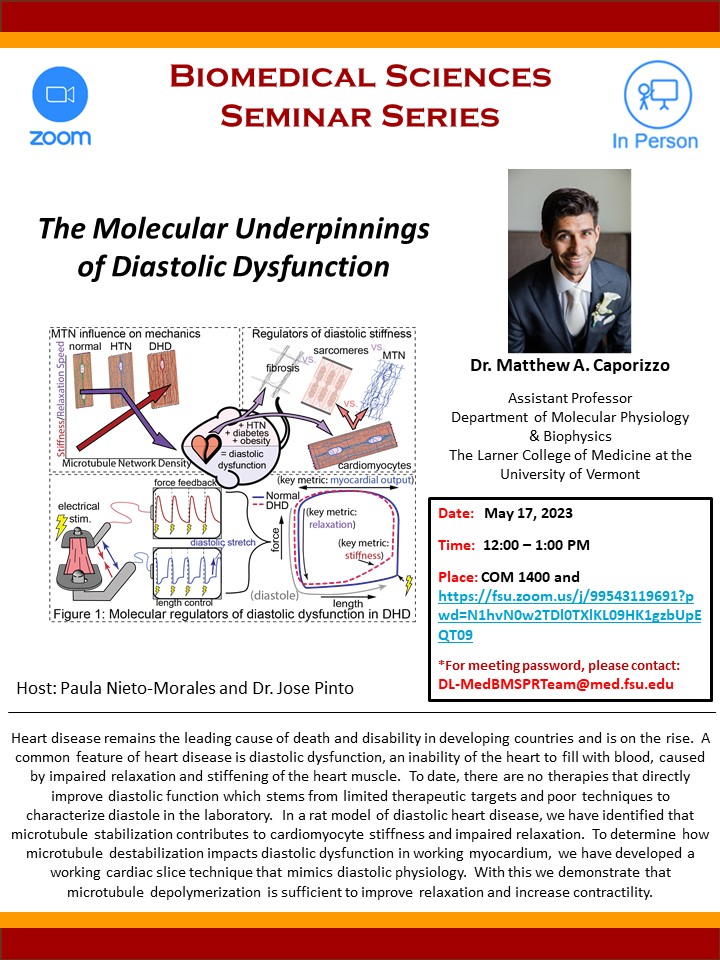BMS Seminar Series: The Molecular Underpinnings of Diastolic Dysfunction

Heart disease remains the leading cause of death and disability in developing countries and is on the rise. A common feature of heart disease is diastolic dysfunction, an inability of the heart to fill with blood, caused by impaired relaxation and stiffening of the heart muscle. To date, there are no therapies that directly improve diastolic function which stems from limited therapeutic targets and poor techniques to characterize diastole in the laboratory. In a rat model of diastolic heart disease, we have identified that microtubule stabilization contributes to cardiomyocyte stiffness and impaired relaxation. To determine how microtubule destabilization impacts diastolic dysfunction in working myocardium, we have developed a working cardiac slice technique that mimics diastolic physiology. With this we demonstrate that microtubule depolymerization is sufficient to improve relaxation and increase contractility.
Durrell Peaden Auditorium and Zoom

